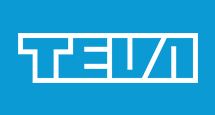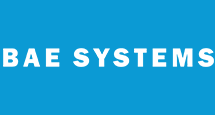Visiongain Publishes Nuclear Reactor Decommissioning Market Report 2023-2033
11 August 2023
Visiongain has published a new report entitled Nuclear Reactor Decommissioning Market Report 2023-2033: Forecasts by Reactor Size (Large Reactors, Small Modular Reactors), by Type (Immediate Dismantling, Safe Enclosure , Entombment), by Funding Type (Self-Funded, Government-Funded, External Financing, Other), by Reactor Type (Pressurised Water Reactor (PWR), Boiling Water Reactor (BWR), Gas-Cooled Reactor (GCR), Fast Neutron Reactor (FNR), Other), by Phase (Pre-Decommissioning, Decontamination & Dismantling (D&D), Defueling & Storage, Waste Management, Site Restoration, Other) AND Regional and Leading National Market Analysis PLUS Analysis of Leading Companies AND COVID-19 Impact and Recovery Pattern Analysis.
The global nuclear reactor decommissioning market was valued at US$77.1 billion in 2022 and is projected to grow at a CAGR of 2.5% during the forecast period 2023-2033.
Economics Drive Rationalized Decommissioning Strategies
The cost of operating aging reactors and the potential financial burdens of decommissioning have prompted stakeholders to develop economically viable decommissioning strategies. Effective project management, risk assessment, and cost estimation are essential to ensure the efficient allocation of resources. The decommissioning market responds by offering innovative solutions that optimize the use of funds while prioritizing safety and compliance.
Energy Transition Spurs Nuclear Decommissioning Opportunities
As countries shift toward cleaner and more sustainable energy sources, the decommissioning of nuclear reactors plays a crucial role in facilitating this energy transition. Decommissioning frees up resources and infrastructure for the development of renewable energy projects, helping nations meet their carbon reduction targets and environmental commitments.
How has COVID-19 had a significant negative impact on the Nuclear Reactor Decommissioning Market?
The COVID-19 pandemic has had significant implications on the nuclear reactor decommissioning market. Many decommissioning projects experienced delays as a result of travel restrictions, lockdown measures, and workforce shortages. Limited access to sites and disruptions in the supply chain slowed down the progress of decommissioning activities.
The economic downturn caused by the pandemic led to financial constraints for both governments and private companies. This resulted in potential budget cuts for decommissioning projects, postponing or scaling down some initiatives. The pandemic prompted a reassessment of safety protocols and working practices at nuclear sites. Strict health and safety measures were implemented to protect workers from COVID-19, leading to adjustments in project timelines and operational procedures.
Some governments and energy companies re-evaluated their energy priorities during the pandemic. As renewable energy sources gained prominence, the focus on nuclear power and its decommissioning may have shifted in certain regions. The pandemic accelerated the adoption of digital technologies and remote working solutions. Virtual inspections, online meetings, and digital documentation became essential tools in managing decommissioning projects amidst the restrictions.
Travel restrictions and border closures affected the supply chain for critical equipment and materials needed for decommissioning projects. Companies faced challenges in sourcing and transporting necessary resources. Regulatory authorities adapted their processes to accommodate pandemic-related constraints, which sometimes led to delays in obtaining necessary permits and licenses for decommissioning activities.
How will this Report Benefit you?
Visiongain’s 366-page report provides 131 tables and 182 charts/graphs. Our new study is suitable for anyone requiring commercial, in-depth analyses for the global nuclear reactor decommissioning market, along with detailed segment analysis in the market. Our new study will help you evaluate the overall global and regional market for Nuclear Reactor Decommissioning. Get financial analysis of the overall market and different segments including type, reactor size, reactor type, funding type, phase, and capture higher market share. We believe that there are strong opportunities in this fast-growing nuclear reactor decommissioning market. See how to use the existing and upcoming opportunities in this market to gain revenue benefits in the near future. Moreover, the report will help you to improve your strategic decision-making, allowing you to frame growth strategies, reinforce the analysis of other market players, and maximise the productivity of the company.
What are the Current Market Drivers?
Collaborative Learning Enhances Decommissioning Practices
International collaboration allows for the exchange of best practices, lessons learned, and technological innovations in nuclear decommissioning. Nations with decommissioning experience can offer valuable insights to those entering this phase, leading to the adoption of efficient methodologies and the avoidance of potential pitfalls. This cooperative approach accelerates knowledge transfer and fosters a culture of continuous improvement.
Resource Optimization Drives Nuclear Reactor Decommissioning
The decommissioning of nuclear reactors contributes to energy security by allowing nations to efficiently allocate resources and adapt their energy mix to changing demands. Retirement of outdated facilities prevents resource wastage on ineffective operations, redirecting investments toward modern energy infrastructure and technologies.
Where are the Market Opportunities?
Advancements in Decommissioning Technologies, Offering More Cost-Effective Solutions
Advancements in decommissioning technologies are transforming the nuclear reactor decommissioning market, providing more cost-effective solutions and enhancing overall project efficiency. One key area of advancement is in robotics and remote handling technologies. Traditionally, decommissioning tasks involved high levels of human intervention, posing risks to workers' safety due to radiation exposure and physical hazards. However, with the development of advanced robotic systems, decommissioning tasks can be conducted remotely and with higher precision. These robots are designed to withstand high radiation levels and perform intricate operations, reducing the need for human presence in hazardous areas and ensuring worker safety.
Potential for Repurposing Decommissioned Nuclear Sites for Alternative Energy Projects or Industrial Purposes
Repurposing decommissioned nuclear sites offers valuable opportunities to leverage existing infrastructure for alternative energy projects or industrial purposes. After a nuclear facility is safely decommissioned, the site's infrastructure and location can be strategically utilized to address various energy and industrial needs.
One of the most prominent opportunities lies in repurposing the site for renewable energy projects. Many decommissioned nuclear sites are located near transmission infrastructure and populated areas, making them suitable locations for solar or wind power installations. The existing electrical grid connections can facilitate the integration of renewable energy sources into the power system, contributing to a cleaner and more sustainable energy mix.
Competitive Landscape
The major players operating in the nuclear reactor decommissioning market are AECOM, Ansaldo Nucleare, Bechtel Corporation, Enercon Services, Inc., EnergySolutions, Fluor Corporation, Holtec International, Jacobs Solutions Inc., Magnox Ltd, NUKEM Technologies GmbH, Nuvia Group, Orano SA, Studsvik, Toshiba Corporation, Westinghouse Electric Company LLC, . These major players operating in this market have adopted various strategies comprising M&A, investment in R&D, collaborations, partnerships, regional business expansion, and new product launch.
Recent Developments
• 18 July 2022, With Norwegian Nuclear Decommissioning (NND), Westinghouse Electric Company has signed a significant engineering contract to organise the shutdown of the nation's two nuclear research reactors in Halden and Kjeller. The three-year contract, worth up to $100 million (NOK 1 billion), has options that can extend for up to six years
• 17 June 2019, An Alliance Agreement was inked by Toshiba and AECOM (NYSE:ACM), two leading, fully integrated global infrastructure companies, to collaborate on the decommissioning of nuclear reactors in Japan. Combining Toshiba's extensive support of the nuclear industry with AECOM's thirty years of nuclear decommissioning expertise is a significant step forward.
Notes for Editors
If you are interested in a more detailed overview of this report, please send an e-mail to contactus@visiongain.com or call +44 (0) 207 336 6100.
About Visiongain
Visiongain is one of the fastest-growing and most innovative independent media companies in Europe. Based in London, UK, Visiongain produces a host of business-to-business reports focusing on the automotive, aviation, chemicals, cyber, defence, energy, food & drink, materials, packaging, pharmaceutical and utilities sectors.
Visiongain publishes reports produced by analysts who are qualified experts in their field. Visiongain has firmly established itself as the first port of call for the business professional who needs independent, high-quality, original material to rely and depend on.
Recent News
Visiongain Publishes Carbon Capture Utilisation and Storage (CCUS) Market Report 2024-2034
The global carbon capture utilisation and storage (CCUS) market was valued at US$3.75 billion in 2023 and is projected to grow at a CAGR of 20.6% during the forecast period 2024-2034.
19 April 2024
Read
Visiongain Publishes Liquid Biofuels Market Report 2024-2034
The global Liquid Biofuels market was valued at US$90.7 billion in 2023 and is projected to grow at a CAGR of 6.7% during the forecast period 2024-2034.
03 April 2024
Read
Visiongain Publishes Hydrogen Generation Market Report 2024-2034
The global Hydrogen Generation market was valued at US$162.3 billion in 2023 and is projected to grow at a CAGR of 3.7% during the forecast period 2024-2034.
28 March 2024
Read
Visiongain Publishes Biofuel Industry Market Report 2024-2034
The global Biofuel Industry market was valued at US$123.2 billion in 2023 and is projected to grow at a CAGR of 7.6% during the forecast period 2024-2034.
















